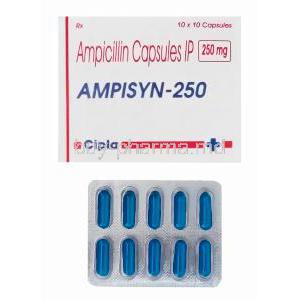Metabolis
- I. Introduction
- II. Composition of Metabolis
- III. How Metabolis Works
- IV. Uses of Metabolis
- V. Off-Label Use of Metabolis
- VI. Dosage and Administration
- VII. Side Effects of Metabolis
- VIII. Important Precautions
- IX. Interaction with Other Medications
- X. Warnings and Contraindications
- XI. Careful Administration
- XII. Overdosage
- XIII. Handling and Storage
I. Introduction
II. Composition of Metabolis
- L-Carnitine: L-Carnitine plays a crucial role in energy metabolism, aiding in the transport of fatty acids into the mitochondria for energy production.
- Ginseng: Ginseng is an adaptogenic herb known for its potential benefits in stress management, immune function, and overall well-being.
- Green Tea Extract: Green tea contains antioxidants called catechins, which may support metabolic health and fat oxidation.
- Coenzyme Q10 (Co-Q 10): Co-Q 10 is involved in cellular energy production and acts as an antioxidant.
- Alpha-Lipoic Acid (ALA): ALA has antioxidant properties and may enhance insulin sensitivity.
- Vitamin D3: Essential for bone health, immune function, and overall vitality.
- Antioxidants & Micronutrients: These include vitamins, minerals, and trace elements that support various metabolic processes.

III. How Metabolis Works
Metabolis works in a way by targeting certain enzymes and receptors to optimize how our metabolism functions. This helps normalize metabolic rates and improve how we use energy. Metabolis has an impact on metabolic processes, such as glucose metabolism, lipid profiles, and energy expenditure. It plays a role in keeping our metabolism balanced and healthy.
IV. Uses of Metabolis
Metabolis has been found beneficial in managing metabolic disorders, including improved clinical measurements such as lower blood sugar levels and better lipid profiles. It is also recommended for individuals with borderline diabetes and hypertension who are adopting lifestyle modifications123.
V. Off-Label Use of Metabolis
Summary and Examples: Apart from its approved uses, Metabolis is occasionally prescribed for conditions that are not explicitly stated in its regulatory approval. Some of these conditions include ovary syndrome (PCOS) and non-alcoholic fatty liver disease (NAFLD). Research and studies provide increasing evidence of the benefits of using Metabolis for these off-label purposes, emphasizing its versatility as a metabolic agent.
VI. Dosage and Administration
Dosage Recommendations: The recommended dosages for Metabolis are customized to suit each individual's clinical characteristics, considering the seriousness of their condition and how they respond to treatment. How to Administer; Metabolism is taken orally, with the specific doses being determined by the requirements and the patient's ability to tolerate them. Adaptations for Specific Groups: Special attention should be given to populations like older adults, pregnant women, and children. This may involve adjusting the dosage or exploring alternative treatment approaches.
VII. Side Effects of Metabolis
- Potential Side Effects: Some of the side effects that individuals may experience include gastrointestinal issues, mild headaches, and feelings of fatigue.
- Serious Adverse Reactions: Although uncommon, there have been instances of adverse reactions such as liver dysfunction and severe hypoglycemia.
- Reporting Side Effects: In case any adverse effects occur, patients are strongly encouraged to report these incidents to their healthcare provider.

VIII. Important Precautions
Before starting Metabolis it is important to review your medical history and medications to minimize the chances of any negative reactions. It is crucial to monitor your blood parameters and overall well being while taking Metabolis to quickly address any potential side effects. This will ensure that you can safely and effectively use the medication.
IX. Interaction with Other Medications
Please note that Metabolis may interact with medications, which could potentially affect their effectiveness. These interactions can range from reducing the desired outcome to increasing the likelihood of experiencing side effects. It is important to be aware that the use of drugs alongside Metabolis may impact its pharmacokinetic and pharmacodynamic properties, requiring adjustments to treatment plans. To avoid any drug interactions, healthcare providers should thoroughly assess all medications the patient is currently taking before prescribing Metabolis.
X. Warnings and Contraindications
Specific Health. Contraindications; This medication should not be given to individuals who have had a reaction to any of its ingredients. It is also important for patients with liver or kidney problems, uncontrolled blood pressure, or certain metabolic disorders to be cautious or avoid using it altogether.
Risks and Safety Considerations: Before prescribing this medication, healthcare providers need to assess the balance between the potential benefits and risks in relation to the patient's complete medical history. This evaluation is crucial in order to anticipate any negative effects or contraindications, thus ensuring the well-being of the patient.
XI. Careful Administration
- Information for the Elderly: When it comes to older patients, it's important to adjust medication dosages considering their reduced ability to process drugs. To minimize any side effects, close monitoring of both effectiveness and tolerability is recommended.
- Advice for Pregnant Women and Nursing Mothers; The safety of using this medication during pregnancy and breastfeeding hasn't been definitively determined yet. Therefore, it should only be used if the potential benefits outweigh the risks to the baby or nursing infant.
- Guidelines for Administering to Children; Before prescribing this medication to children, healthcare providers should carefully consider adjusting the dosage based on their responses to drugs in this specific age group.
XII. Overdosage
Signs and indications of an overdose: An overdose can present with symptoms such as nausea, vomiting, significant drop in blood sugar levels, and disturbances in heart function. Early recognition of these signs is vital to take action. Steps and treatment: If an overdose occurs, it is essential to seek immediate medical assistance. Treatment primarily involves providing support and addressing the symptoms to stabilize the patient and counteract the effects caused by taking too much medication.
XIII. Handling and Storage
It is important to store the medication to ensure its effectiveness and shelf life. Keep it at room temperature, away from sunlight and moisture, as this will help maintain the stability of its ingredients. To ensure safety when handling the medication, it is crucial to follow safety protocols. Healthcare professionals and patients should adhere to the recommended guidelines for dispensing, administering, and disposing of the medication in order to minimize any risks that may arise from improper handling.






















